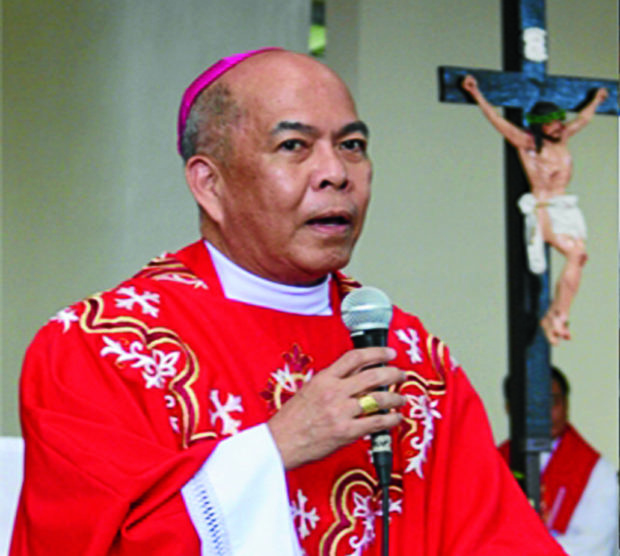
Archbishop Ramulo G. Valles. CBCP PHOTO
CEBU CITY—With the police antidrug operation “Oplan Tokhang” set to resume on Monday, the president of the Catholic Bishops’ Conference of the Philippines (CBCP) has called on all police operatives to follow “proper procedures” in dealing with drug suspects “to avoid bloodshed.”
“I hope our policemen will follow the proper procedures as they try to do their responsibilities,” Davao Archbishop Romulo Valles said on Friday. “As much as possible, let us try to avoid any bloodshed,” he added.
Valles also asked people to pray for the police “and inspire them to make the right approach in arresting persons they think [had] violated the law.”
The Philippine National Police recently announced new guidelines in its Oplan Tokhang (knock and plead) program, including the use of body cameras and conducting visits to the homes of drug suspects only on weekdays, from 8 a.m. to 5 p.m.
Media representatives
While drug raids can still be conducted at night, police operatives must wear body cameras, the guidelines said.
“Agents and witnesses, particularly media representatives, shall wear mandatory cameras,” Philippine Drug Enforcement Agency (PDEA) chief Aaron Aquino said in a memorandum released to the media.
Media witnesses to police operations are also required to wear bulletproof vests, ballistic helmets and other protective gear, as “their safety and security shall be ensured by the ground commander,” Aquino said.
Editing prohibited
His memo prohibited the editing, cutting, splicing or deletion of videos generated during PDEA operations.
Center for International Law (CenterLaw), meanwhile, sought clarification of a “vague” provision in the new guidelines that mandates onsite inquest proceedings of suspects killed in police operations.
By virtue of his death “(the suspect’s) criminal liability is extinguished,” said Jacqueline de Guia, spokesperson for the Commission of Human Rights.
CenterLaw also asked that police officers who carried out the operation be investigated to check if their narrative “matches the physical evidence on hand.”
The head of the PNP Directorate for Operations, Director Camilo Cascolan, explained that inquest prosecutors would still be called to assess the results of antidrug operations and check if police procedures [were] followed. —WITH REPORTS FROM JHESSET O. ENANO AND JAYMEE T. GAMIL